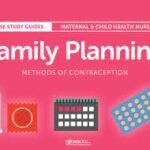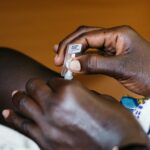The hiphop beats start first—loud and thumping. Teenagers sway and jerk in body-breaking dance steps. A rap intro belts out in Luganda, celebrating the mastery of dancing.
But the teenagers are in Kamonyi district in Rwanda. The first real discernible words are in shocking English: “Use condom, use condom!”
It is a blatant message that a world chasing after demographic dividend is coming to terms with. Its young are growing, active, and demanding a space in the discourse about Earth’s population. They are not planning families, but that’s exactly why they need family planning.
Around 60 boys and girls aged anywhere between 16 and 30 have gone through a phase of mobilisation into the youth centre before settling into regular classes.
Across all of Rwanda’s 30 districts, young people are flocking to youth centres which double as both vocational centres and health centres considered “friendly” to the needs of young people.
It is the perfect environment for sex education, for discourse in sexual and reproductive health and rights without the censure of older more conservative elders or health workers.
Agnes Uwimbabazi is 22 and has been attending classes at the centre since September to learn tailoring.
Alongside handling thread and scissors, she’s taking sex education classes formally for this first time in her life.
“I’m being taught how I can avoid getting pregnant. If I have to, I know to use a condom,” she says in Kinyarwanda.
“But then I also have to think about the possibility of sexually transmitted infections.”
For many young people, the choice is between abstinence and using a condom.
They want to live their lives, not plan families, but they are a key demographic that could stop the world’s population bulge tipping over.
Searching for a future
Fred Nkurunziza completed five years of secondary school before dropping out, unable to raise school fees. Now 21, he attends the youth centre to learn how to repair cars.
At 24, Ns Thierry spends half-day shifts behind a restaurant desk at a three-star hotel to pay for his hotel-management course at a private university in Kigali.
Worlds apart in the same city, both young men are focused on a future unencumbered by mistakes. Not just for boys, but for the girls in their lives too.
The youth centre has kept Nkurunziza off the streets, but the extra sex education lessons teaches him to “know how we can prevent our sisters from falling pregnant, support her, and help to reduce the number of people who suffer from HIV and solve the problem of large number of people killed by HIV and other related diseases,” he says.
“As a person, I can help my sister. When I fail, I can use a condom,” he says. But he’s not using a condom because he’s not in any relationship.
“When you do that, you get many problems, we are still very young, not mature. But when you reach maturity and handle it better, you are stronger,” says Nkurunziza.
The dynamics of societal norms put girls at more risk. Thierry has anecdotes about girls preferring a morning-after pill right after sex to “wash out” anything, he says. That might stop a conception happening, but not nearly enough.
The Progress Report tracking commitments to family planning across 69 lowest-income countries has thrown up data showing worrying lack of knowledge and unmet need with regards to contraception.
The YP Foundation in India speaks about young people having little to no knowledge about simple things as birth control they can buy off pharmacy shelves.
At the same time, young girls are at more risk of contracting HIV, facing pregnancy and childbirth complications after falling pregnant, dropping out of school because they are pregnant and facing bleaker futures because they lack any empowerment.
The Progress Report is “providing insights where before we were in the dark,” says Natalia Kanem, executive director of the United Nations Population Fund, which provides 14% of all donor-funded contraception around the world.
“The data provides a sense of who we need to reach—and young people are a big part of that.”
That move alone could prevent some 67 million pregnancies, avert 30 million abortions, prevent 220,000 maternal deaths and some 2 million newborn deaths, according to projections.
“If you don’t learn from evidence, you will learn from accident,” says Kanem.
“And we have heard from young people who learned from accident and had to lose some of their potential.”
Young people need it. Their bodies go through so many changes from puberty, it leaves them bewildered. And they need to talk about it.
The changes do not measure in percentages like gross domestic product that financiers can understand. And politicians still think sexual and reproductive health and rights are a “soft issue,” says Sadia Rahman, a Bangladeshi delegate for the International Youth Alliance for Family Planning, and director of a youth-focused group in her country.
“If we cannot claim right over our bodies, we cannot add to national growth.”

Not future, but present, starting today
Without knowledge, many young people risk being led astray.
“A girl child should know how to protest when people are abrogating her human rights to her body,” says Kanem.
“If she doesn’t understand her body, she will be misled in the wrong direction. She should be part of the decision, to know what it means to raise a baby.”
The change is showing up in different forms, starting with menstrual hygiene.
In 2016, a group fashioned reusable sanitary and taught women in a rural community on the outskirts of Abuja how to make them. There, women have routinely used rags.
Three years on, the message of menstrual hygiene has gotten stronger. Nongovernment groups are meeting junior secondary school-age girls in their classrooms with donations of sanitary kits and how to use them.
Not just how to use them, but how to understand and talk about their menstrual cycle without embarrassment or remorse.
In India, boys are being brought into the loop too—starting with filling up boxes with candies and sanitary pads right in their classrooms so their female classmates can have easy access.
In Rwanda, a growing number of parents are getting comfortable sending their children to youth centres in full knowledge teachers there will dish out sex-ed lessons.
Dusabe Jeannete, 17, and Byiringiro Dieudowne, 22 are among the hiphop dancers gyrating to the “use condom” song. Their parents know where their children are, and are okay with the lessons.
Two-thirds of the country’s population is aged under 25 years.
In addition to the lessons, the centre has a supply of condoms in the care of nurse Alice Mutagarugori. They are free to ask her for one, but they have to first answer her questions about why they need it. And it is not judgmental.
The voice of young people continues to creep into decision making about family planning across countries.
Jane Nyathi from Zimbabwe won a youth video contest on family planning last year and was paneled to speak at the fifth international family planning conference in Kigali this November.
The conference is to push investment in family planning as securing the future. Nyathi says that investment will empower women.
“Some 49 million girls drop out of school every year. What impact does that have on the economy, social life, environment,” she says.
“Investing means we are taking girls to school, saving a lot of lives, saving financially.
“Most of the countries have not lived up to their commitments since 2012, and a lot of girls are suffering because of that. We must reach the targets for 2030 so that we really can say we have done something for our girls.”
Not just girls—but young people across board. It is also about avoid unwanted pregnancies, giving young people opportunity to grow their potential and have a voice in decisions that concern them.
“We are not the future; we are the present,” says Rahman. “You have to count us, and you have to listen to us.”

 Join Daily Trust WhatsApp Community For Quick Access To News and Happenings Around You.
Join Daily Trust WhatsApp Community For Quick Access To News and Happenings Around You.


